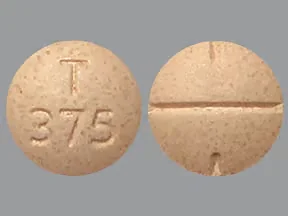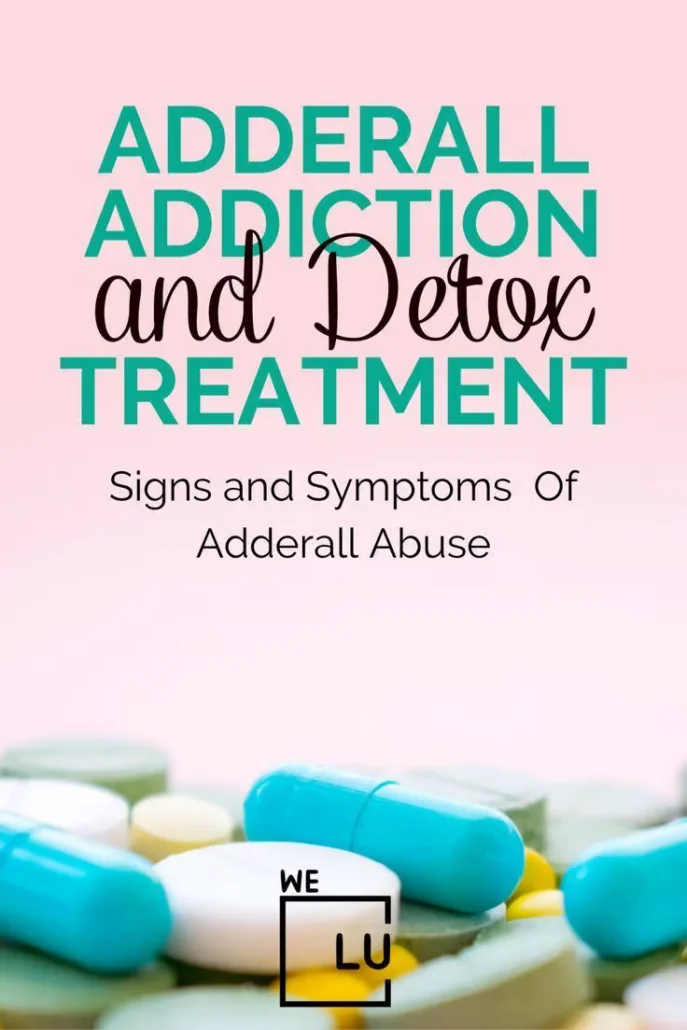Is Adderall Addictive?
Prescriptions for Adderall, used to treat attention deficit hyperactivity disorder (ADHD), have skyrocketed in recent years due to widespread abuse. Despite its usefulness in treating ADHD, its stimulant properties have made it a target of abuse by those who, like students and working adults, want to increase their concentration and productivity. However, there are serious consequences associated with Adderall abuse, the most serious of which is addiction.
Many people depend on Adderall, making it a major public health problem. Adderall addiction (addiction adderall) is associated with many negative outcomes, including deterioration in physical and mental health, problems in interpersonal relationships, and even legal trouble.
The number of Adderall addicts has risen partly because the drug is easy to depend on. Adderall is highly addictive, and many people taking it for medical reasons completely depend on it.
Although Adderall can be helpful for people with ADHD, the risks of becoming addicted to the drug are not to be disregarded. Adderall addiction can have serious consequences for a person’s health and well-being, both physically and mentally. Therefore, if you or someone you care about is struggling with Adderall addiction, it is crucial to become educated on the drug’s risks and get help.
Those who are interested in learning more about Adderall addiction, its causes, and the various treatment options open to those who are battling this disease have come to the right place. We’ll talk about the warning signs of Adderall abuse and what to do if you or someone you know has a problem with the drug.
Adderall Addiction Signs
Many people who abuse Adderall develop a devastating addiction to the drug. Addictive behaviors may lead to negative changes in one’s physical and mental health, conflicts in interpersonal relationships, and even legal trouble. To get help for those who need it, it is crucial to recognize the signs and symptoms of Adderall addiction. Here we’ll look at some of the symptoms that may indicate that you have an Adderall problem.
Adderall addiction symptoms:
- Increasing the dosage of Adderall beyond what was recommended.
- Using Adderall outside of prescribed doses.
- Using Adderall persistently despite its harmful effects.
- Getting or using Adderall without a doctor’s approval.
- Put in a lot of effort and cash to get and use Adderall.
- Using Adderall excessively to neglect responsibilities at work, school, or home.
- Taking Adderall to help deal with mental or emotional strain.
- Taking the stimulant Adderall and acting recklessly.
- Struggling with Adderall withdrawal while trying to cut back on use.
Signs You’re Addicted to Adderall or Adderall Addiction:
- Enhanced vigilance and vitality.
- Less hunger and weight loss as a result.
- Problems falling asleep or staying asleep.
- Anger or agitation.
- Discomfort caused by inactivity.
- Illusions or paranoia.
- Psychotic breaks or hallucinations.
- A rise in blood pressure or heart rate.
- Heart palpitations or chest pain.
- Constipation, diarrhea, and/or nausea.
An Adderall addict has become physically and psychologically reliant on the drug. Adderall addicts often experience significant negative consequences due to their addiction, including physical and mental health problems, relationship difficulties, and legal issues. It is essential to recognize the signs of Adderall addiction and seek help from those who need it.

Skip To:
Learn More:
Get Help. Get Better. Get Your Life Back.
Searching for Accredited Drug and Alcohol Rehab Centers Near You?
Even if you have failed previously and relapsed, or are in the middle of a difficult crisis, we stand ready to support you. Our trusted behavioral health specialists will not give up on you. When you feel ready or just want someone to speak to about therapy alternatives to change your life call us. Even if we cannot assist you, we will lead you to wherever you can get support. There is no obligation. Call our hotline today.
FREE 24/7 HotlineAdderall Abuse Statistics
Adderall abuse is a growing problem in many parts of the world. According to recent studies and reports, Adderall abuse has increased among young adults, college students, and professionals seeking to enhance their academic or work performance. These statistics highlight the need for greater awareness and prevention efforts to address the negative consequences of Adderall abuse.
6.4%
Approximately 6.4% of Americans aged 18-25 reported misusing prescription stimulants like Adderall in 2020.
Source: National Survey on Drug Use and Health
220%
Emergency department visits related to nonmedical use of prescription stimulants, including Adderall, increased by 220% between 2006 and 2011.
Source: Journal of Clinical Psychiatry
20%
20% of college students reported using Adderall without a prescription, with the primary motivation being to improve academic performance.
Source: Partnership for Drug-Free Kids
Adderall Drug Facts
Adderall Abuse Overview
Adderall is a prescription medication commonly used to treat Attention Deficit Hyperactivity Disorder (ADHD) and Narcolepsy. However, Adderall is also a highly abused drug due to its stimulant effects that can increase focus, energy, and productivity. Individuals who abuse Adderall often take the drug in larger doses than prescribed, more frequently than prescribed, or without a prescription.
Adderall Abuse Effects
Adderall abuse can negatively affect an individual’s physical and mental health. Short-term effects of Adderall abuse can include loss of appetite, insomnia, anxiety, agitation, and increased heart rate and blood pressure.
Long-term abuse of Adderall can lead to severe health problems such as addiction, cardiovascular damage, seizures, and psychosis. Additionally, Adderall abuse can cause relationship difficulties, academic or job performance problems, and legal issues. It is crucial to seek help for Adderall abuse to prevent these negative effects and promote long-term health and well-being.
Adderall Abuse Treatment
- Treatment for Adderall abuse usually involves a combination of therapy, support groups, and medication management.
- Detoxification is often the first step in treating Adderall abuse and involves managing withdrawal symptoms as the drug is slowly removed from the body.
- Behavioral therapy, such as cognitive-behavioral therapy (CBT), can help individuals identify and change negative patterns of thinking and behavior that contribute to substance abuse.
- Support groups like 12-step programs like Narcotics Anonymous can provide valuable support and accountability during recovery.
- Medications may be used to help manage withdrawal symptoms and cravings, as well as treat underlying mental health conditions that contribute to substance abuse.
- Aftercare programs, such as continued therapy and support groups, can help individuals maintain their recovery and prevent relapse.
Popular Adderall Addiction FAQs
-
Can You Get Addicted To Adderall?
Physical and psychological dependence are both possible outcomes of using Adderall. Adderall can be highly addictive, and even those who take it as prescribed may experience withdrawal when they try to stop.
-
How Addictive Is Adderall?
Adderall abusers are among the most likely to develop a dependency on the drug. When used incorrectly, the drug can cause both physical and psychological dependence.
-
Is Adderall Addictive For ADHD?
People with ADHD who take Adderall as directed rarely develop an addiction to the drug. However, the risk of addiction is significantly higher for people who do not have ADHD but use Adderall for other reasons.
-
Is Adderall Addicting?
Addiction to Adderall is very real. When used incorrectly or abused, the drug can cause severe psychological and physiological dependence.
-
Is Adderall Addictive Or Habit Forming?
Adderall can cause addiction and habituation. The drug can easily be abused, which can lead to dependency and addiction. Regular Adderall users risk developing a dependence on the drug even after their initial medical need has passed.
-
How Long Does It Take To Get Addicted To Adderall?
Several factors, including genetics, dosage, frequency of use, and method of administration, influence how quickly an individual develops an addiction to Adderall. However, research shows that after just a few weeks or months of regular use, Adderall addiction can set in. It’s crucial to look out for the warning signs of addiction and get help right away.
-
u003cstrongu003eCan Someone With Adhd Get Addicted To Adderall?u003c/strongu003e
An Adderall addict must have Attention Deficit Hyperactivity Disorder. The levels of the neurotransmitters dopamine and norepinephrine in the brain are boosted by the use of Adderall, a drug that stimulates the central nervous system. These neurotransmitters control mental processes like concentration and disposition. u003cbru003eu003cbru003eAdderall can help people with attention deficit hyperactivity disorder focus and maintain their attention. However, addiction is possible with these drugs because they alter brain chemistry.
Adderall Addiction Side Effects

Adderall Addiction Short-Term Effects
- Loss of appetite.
- Insomnia.
- Anxiety.
- Agitation.
- Paranoia.
- Increased heart rate and blood pressure.
- Headache.
- Dizziness.
- Hallucinations (in some cases).
- Seizures (in some cases).
- Cardiac arrest (in rare cases).
- Negative effects on personal relationships.
- Negative effects on work or academic performance.
- Negative effects on financial stability.
Not everyone who abuses Adderall will experience all of these short-term effects, and the severity of the effects can vary greatly from one person to another and from one degree of addiction to another. These negative, short-term effects can be mitigated significantly by getting help for Adderall addiction.
Adderall Addiction Long-Term Effects
- The body can develop a tolerance to Adderall, making it necessary to take increasingly large doses to experience the same effects.
- Adderall can potentially cause physical and psychological dependence if used for an extended period. The body has come to rely on the drug for normal functioning, and discontinuing its use may result in unpleasant withdrawal symptoms.
- Symptoms of Adderall withdrawal include drowsiness, mood swings, irritability, and fatigue after discontinuing use.
- High blood pressure, palpitations, and irregular heartbeats are just some of the cardiovascular issues that have been linked to chronic Adderall use.
- Abuse of Adderall has been associated with an increased risk of several mental health issues, including anxiety, depression, and psychosis.
- Cognitive Impairment: Memory, attention, and concentration problems have been linked to long-term Adderall use.
- Insomnia & Other Sleep Disorders: Adderall has been linked to disrupted sleep patterns.
- Adderall’s appetite-suppressing effects can cause malnutrition and other issues related to eating poorly.
- Long-term use of Adderall has been linked to an increased risk of substance abuse and addiction.

Get Your Life Back
Find Hope & Recovery. Get Safe Comfortable Detox, Addiction Rehab & Dual Diagnosis High-Quality Care.
Hotline (855) 459-2880Can Someone With Adhd Get Addicted To Adderall?
Yes, someone with ADHD can become addicted to Adderall. Adderall is a central nervous system stimulant that increases the levels of dopamine and norepinephrine in the brain. These chemicals are responsible for regulating attention, focus, and mood. For people with ADHD, Adderall can improve their ability to concentrate and stay alert. However, as with any medication that affects the brain’s chemistry, there is a risk of addiction.
Addiction is a complex condition characterized by compulsive drug seeking and use despite harmful consequences. In the case of Adderall addiction, a person with ADHD may start to rely on the drug to function normally and may begin to take higher doses or use it more frequently than prescribed. This can lead to tolerance, dependence, and withdrawal symptoms if the drug is stopped abruptly.
It’s important to note that not everyone who takes Adderall will become addicted. The risk of addiction can be reduced by taking the medication as prescribed, avoiding increasing the dose without a doctor’s approval, and monitoring for any signs of dependence or abuse. Regular communication with a healthcare provider can help identify potential issues early and provide appropriate support and treatment.
First-class Facilities & Amenities
World-class High-Quality Addiction Rehabilitation Treatment
Renowned Addiction Centers. Serene Private Facilities. Inpatient Rehab Programs Vary.
Addiction Helpline (855) 459-2880Proven recovery success experience, backed by a Team w/ History of:
15+
Years of Unified Experience
100s
5-Star Reviews Across Our Centers
10K
Recovery Successes
- Comprehensive Dual-Diagnosis Treatment
- Complimentary Family & Alumni Programs
- Coaching, Recovery & Development Events
- Comfortable Onsite Medical Detox Center
Adderall Addiction Treatment
Adderall addiction treatment usually involves a combination of medication and therapy. The goal of treatment is to help the individual overcome the physical and psychological dependence on the drug and learn new coping skills to manage ADHD symptoms without Adderall.
Here are some common treatments for Adderall addiction:
- Medication-Assisted Treatment: This involves using medication to help manage withdrawal symptoms and cravings. Medications like buprenorphine, naltrexone, and methadone effectively treat Adderall addiction.
- Behavioral Therapy: This therapy focuses on helping individuals learn new coping skills and behaviors to manage their ADHD symptoms without Adderall. Cognitive-behavioral therapy (CBT) is a commonly used therapy that can help people develop healthy habits and coping strategies to manage their condition.
- Support Groups: Joining a support group, such as Narcotics Anonymous, can provide individuals with a supportive community of people recovering from addiction. Support groups can help individuals stay motivated and accountable in their recovery journey.
- Inpatient Rehab: For severe cases of Adderall addiction, inpatient rehab may be necessary. This involves staying at a residential treatment center for a period of time to receive intensive treatment and support.
- Outpatient Rehab: Outpatient rehab may be an option for less severe cases. This involves attending therapy and support group sessions on an outpatient basis while still living at home.

Working with a healthcare provider or addiction specialist is important to determine the most appropriate treatment plan for an individual’s needs. With the right treatment and support, recovery from Adderall addiction is possible.
We Level Up Adderall Addiction Dual Diagnosis Treatment
The definition of dual diagnosis (also referred to as co-occurring disorders) can differ between institutions. However, it is generally described as the specific treatment of someone diagnosed with a substance use disorder and a mental health disorder simultaneously. Treating dual-diagnosis clients is a critical aspect of our inpatient treatment experience because co-occurring disorders are strongly correlated with instances of substance abuse.
Creating a treatment plan that addresses the physical aspects of withdrawal, the psychological connection with drug use, and managing underlying mental health disorders is part of setting clients up for success. A thorough mental health analysis identifies possibilities for treatment. Meeting with mental health counselors and medical care providers means access to behavioral therapy and medication treatment. At our dual diagnosis treatment center, We Level Up can implement the highest quality of care.
We recognize the fragile complexities of how mental and substance abuse disorders can influence others and sometimes result in a vicious cycle of addiction. That’s why we offer specialized treatment in dual-diagnosis cases to provide the most excellent chance of true healing and long-lasting recovery.
Accepting that you may be living with a mental illness can be challenging. However, treating the presenting substance abuse case can be magnitudes easier once properly diagnosed and treated. Only a properly trained medical professional can diagnose these underlying conditions. If you believe you are suffering from a disorder alongside addiction, we urge you to seek a qualified treatment center to begin your journey to recovery. Call We Level Up today.
Start a New Life
Begin with a free call to an addiction & behavioral health treatment advisor. Learn more about our dual-diagnosis programs. The We Level Up treatment center network delivers recovery programs that vary by each treatment facility. Call to learn more.
- Personalized Care
- Caring Accountable Staff
- World-class Amenities
- Licensed & Accredited
- Renowned w/ 100s 5-Star Reviews
We’ll Call You
Prescriptions Drugs & Adderall Addiction Informative Video
Joey’s Opiates, Drugs, and Alcohol Addiction Recovery Story
Joey’s story is a sad reminder of the harsh reality of addiction. He faced significant challenges in his recovery journey after losing his son, but his progress toward sobriety has been inspiring. The crucial first step for Joey was seeking help for his addiction, and he deserves all the necessary support to aid his recovery process.
Search Is Adderall Addictive? Effects of Adderall Addiction Topics & Resources
Sources
- National Institute on Drug Abuse (NIDA) – https://www.drugabuse.gov/drug-topics/prescription-stimulants/adderall-addiction
- Substance Abuse and Mental Health Services Administration (SAMHSA) – https://www.samhsa.gov/medication-assisted-treatment/treatment/adderall
- Centers for Disease Control and Prevention (CDC) – https://www.cdc.gov/drugoverdose/opioids/prescribed.html
- U.S. Food and Drug Administration (FDA) – https://www.fda.gov/drugs/information-drug-class/prescription-stimulants-drug-facts
- U.S. Department of Health and Human Services (HHS) – https://www.hhs.gov/opioids/prevention/prescription-drug-abuse/adderall/index.html
- National Institutes of Health (NIH) – https://www.nih.gov/news-events/news-releases/adderall-misuse-rising-among-young-adults
- Substance Abuse and Mental Health Services Administration (SAMHSA) – https://www.samhsa.gov/find-help/national-helpline
- U.S. Drug Enforcement Administration (DEA) – https://www.dea.gov/factsheets/adderall
- National Library of Medicine – https://medlineplus.gov/druginfo/meds/a601234.html
- National Council on Alcoholism and Drug Dependence (NCADD) – https://www.ncadd.org/about-addiction/addiction-update/adderall-and-addiction-what-you-need-to-know